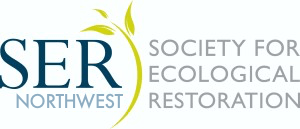Cascadia Restoration Management and News has covered the practice of restoration within the Cascadia bioregion and includes articles, short news briefs, product announcements, and citations/abstracts of published research. Since 1998! Please enjoy select member benefit newsletters below.
Upper Spotted Dog Creek Beaver Habitat Restoration Project
Collaboration between Geum Environmental Consulting, Montana Fish, Wildlife and Parks and Montana Natural Resource Damage Program
“Spotted Dog Creek flows through the Spotted Dog Wildlife Management Area (WMA) near Avon, Montana. The stream was identified as a priority area for creating, enhancing, and protecting wetland and riparian  areas by the State of Montana. Spotted Dog Creek on the WMA has also been identified by Montana Fish, Wildlife and Parks as an important area for beaver habitat enhancement and beaver population expansion. The Spotted Dog Creek channel and floodplain were historically degraded by a legacy of livestock grazing, irrigation diversion, riparian vegetation clearing, beaver trapping, and fluxes in predator and prey populations. These factors resulted in channel incision and a loss of connectivity between the channel and the floodplain. Prior to ecosystem alteration, the large depositional valley bottoms along Spotted Dog Creek supported large colonies of beavers.”
areas by the State of Montana. Spotted Dog Creek on the WMA has also been identified by Montana Fish, Wildlife and Parks as an important area for beaver habitat enhancement and beaver population expansion. The Spotted Dog Creek channel and floodplain were historically degraded by a legacy of livestock grazing, irrigation diversion, riparian vegetation clearing, beaver trapping, and fluxes in predator and prey populations. These factors resulted in channel incision and a loss of connectivity between the channel and the floodplain. Prior to ecosystem alteration, the large depositional valley bottoms along Spotted Dog Creek supported large colonies of beavers.”
Read more here
*****
Newsletter Archives
Past issues of Cascadia Restoration Management and News are archived below.
2021-2022
2021-2022
2018-2019
Fall 2018 – Replaced with 2018 Regional Conference
2015, 2016 & 2017
2013 & 2014
2011 & 2012


